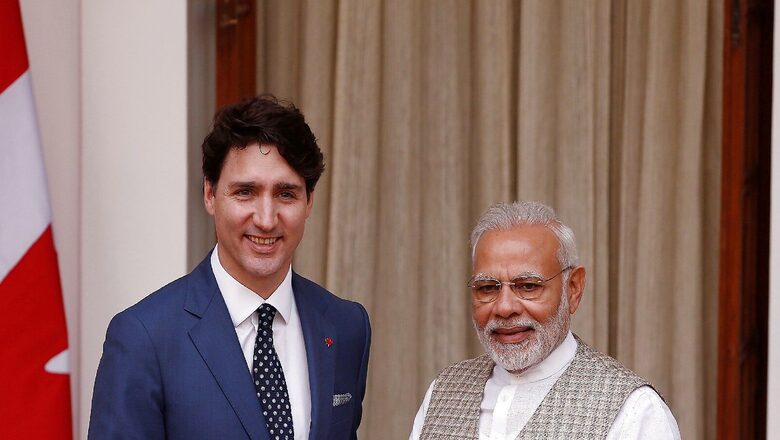
views
Canada recently released its Indo-Pacific strategy acknowledging the region’s centrality in present-day geopolitics. The region is home to 65 percent of the world’s population and will have 50 percent of the world’s GDP by 2040. At the same time, the Indo-Pacific has many geopolitical hotspots and is seeing a deepening of great power rivalry with the emergence of a belligerent China. Also, climate change is a pressing challenge for the Indo-Pacific, given that it is not only home to some of the fastest-growing economies in the world but also 50 percent of global greenhouse gas emissions. Canada’s Indo-Pacific strategy provides a comprehensive blueprint for its engagement in the region with an initial investment of around $2.5 billion over the next five years and the identification of India as a key partner. The publication of the strategy provides a new opportunity for both India and Canada to recalibrate their geo-economic and geopolitical engagement. But this requires addressing key political obstacles and deepening economic ties.
Navigating geopolitical conundrum
India and Canada share a commitment to a rules-based international system. One of the major challenges to this system is the rise of an aggressive and assertive China. Its revisionist geopolitical goals, hostile interference in foreign countries and coercive treatment of other countries have undermined the rules-based international order and have created insecurity and instability in the region. India and Canada have both experienced China’s hostile shenanigans. It is imperative that both countries need to cooperate in standing up to China’s belligerence without resorting to conflict and capitulation. Both countries need to deepen the contours of their strategic corporation in defence, trade, science and technology. There should be greater military cooperation as it would facilitate greater synergy between them. Indo-Canadian Science and Technology corporation needs to deepen in the areas of emerging technologies like quantum computing, artificial intelligence, 3D printing and 5G telecommunications. The rising challenge of climate change is having a major impact on the Indo-Pacific region. The security and well-being of people and nations are being influenced. In 2021, over 57 million people were affected by it in the region. The region is emerging as the global economic hub in the coming decades, accounting for not only 50 percent of the world’s GDP but also 50 percent of greenhouse gas emissions. It will not only have an adverse impact on the region but the whole world. India and Canada can be partners in the war against climate change at bilateral and multilateral levels. At a bilateral level, both can deepen their cooperation in sustainable agriculture, manufacturing and green infrastructure sectors. Also, India’s energy demand will double by 2040, providing immense opportunities for supplying clean energy to Canadian companies. At the multilateral level, both countries can work together with partner countries in building resilience against climate change and working jointly on Humanitarian Assistance and Disaster Relief.
A new horizon of opportunities
The trade relations between the two countries have not been fully explored. India’s exports were $3.7 billion and its imports were $2.7 billion. Both countries are negotiating an Early Progress Trade Agreement (EPTA), a step towards a Comprehensive Economic Partnership Agreement (CEPA). Trade experts note that if both countries sign a CEPA, the trade between them would double from the current level. India can source high-quality raw materials and advanced technology for its economy and Canada will have access to one of the largest markets and fastest-growing economies in the world. India can help Canada diversify its trade and benefit from its sustainable agriculture and advanced manufacturing sectors. Both countries can gain by deepening their technological cooperation. Technology has not only had economic implications but also strategic importance. Canada can benefit India’s skilled professional and tech entrepreneurs. Canada has one of the largest Indian diasporas in the world and hosts the largest number of International students from India than from any other country. The people-to-people connection between both countries can be tapped to deepen the ties between them. This people-to-people connection can enhance all kinds of collaborations and provide a strong foundation to build resilient relations between the countries. For relations between the two to expand and deepen, economic roadblocks need to be removed and Canada needs to address India’s concerns about secessionists using its soil for anti-India activities. It is pertinent for both countries to work jointly in navigating the strategic challenge and converting economic opportunities into common prosperity.
Kingshuk Saha is a researcher at the Takshashila Institution and has written the article in the wake of the publication of Canada’s Indo-Pacific strategy. Views expressed are personal.
Read all the Latest Opinions here




















Comments
0 comment